Good question!
by Michael Stuhlmiller
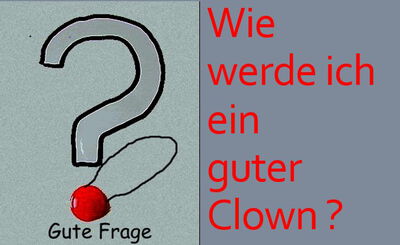
In my experience, it's much harder to find a good question than to provide answers. Do you know situations in which you see something in someone else that they don't even notice in themselves? It's good to give advice from the outside, right? Even advice you would never implement yourself. That doesn't make it wrong. But it's usually not very helpful. Because answers usually confront the other person with what they're not doing, and what they should be doing. In addition, answers can only ever relate to the moment.
Because things are constantly changing, answers are always lagging behind.
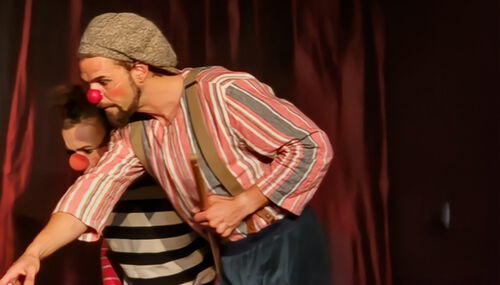
It's quite different with a really good question. Good questions inspire and guide you. A really good question can stay with you for a long time. The more you absorb your question with your entire consciousness (body, mind, soul) over time, the more you recognize the answer in the question.
Take, for example, the popular question: "How do I get rich?" A question that concerns many people. Well, the answer is very simple. If you look closely at the question, the answer is already there. The simple answer is: "Get rich!" Unfortunately, this answer isn't enough for most people. They want to know more and ask, "But HOW – ME?"
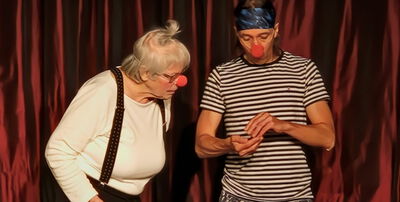
And here the second part of the answer emerges for those who want to know more. To understand this part of the answer, you simply have to look at your hand. Yes, right now. Just do it now: What do you see? Five fingers. Isn't that wonderful? And now look at your other hand: What do you see? Five fingers again. Fantastic! This miracle delights every child. And if, like me, you've played with and around children for many years, then you know what happens next. Perhaps you've seen it with your own children too. Everyone enthusiastically raises their arms, showing their ten fingers. Counting them one by one. Great – fully
equipped – everything's there!
In that moment, it becomes clear: I AM. You can really see it in every child: There is enthusiasm. You can go to each child individually. Their fingers touch. In that moment, they all feel rich and enriched. You can do the same, too. Right now, in this moment. And you can repeat it anytime. Simply place your fingers together and let them touch you. You can feel yourself. You as I. I - my hand. I - my fingers. And you feel it very clearly: "I am rich."
And that's all.
Now see what you do with your wealth. And that brings us to the next question: "What do I do with my wealth?"
It may well be that the answers don't always reach you immediately. Doubt, impatience, guilt, shame intrude. All sorts of things can get in the way of your question and their answer. My tip: don't focus so much on finding the answer. It's much more important to understand the instruction that emerges with the question:
Because the question "How do I become rich?" contains the clue: "Will I become rich?" The second clue is: "Rich like ME." Even if that's just a little play on words. Here's my suggestion: Accept the instructions for action contained in the question and let them work on you.
The essence of a good question is that it accompanies and inspires you.
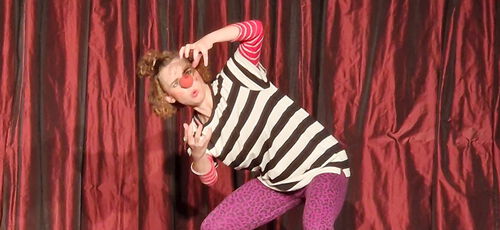
And that's worth more than a momentary answer. The question moves you, the answer closes it, and freezes the question. As if the matter is settled and no longer needs to be questioned. That's why we can often feel uncomfortable with answers.
Do this and don't do that!
But what if your feelings change, or even circumstances change? Will it become clear? The question always remains the same. Only the answer is already outdated the moment you get it.
But why are we looking for answers at all?
Quite simply: We often ask for answers because we want to know exactly what's happening, where it's leading, and what the outcome will be. In other words: we want to know how it works.
And we also want to get the result right away, without having to experience it first. And so they come, the great answers! They put on airs and pretend they can give us everything we want, without us having to move around or get dirty... Of course, disappointment is inevitable...
And so an answer becomes a disappointment. I sometimes experience this in classes when I'm asked: "What is a good clown?" and then: "How do I become a good clown?"
There's no template for a good clown. Every clown is individual and unique. You can't just buy a clown off the shelf.
And that makes it clear: There's a problem here.
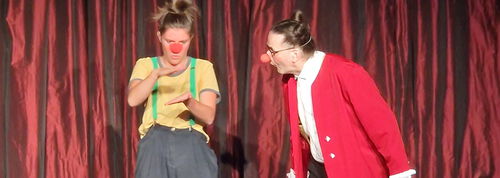
Because it means you have to take a risk. Sometimes the clown doesn't fit properly. Sometimes there are a few pinches and niggles everywhere. That's part of it. Because the clown is you. And so you might suddenly discover things about yourself that you don't want to be, and maybe you'll even be embarrassed at times.
There you have the next answer to your question about how to become a clown.
The answer is: You can only do it. You can experience how you don't have to avoid challenging situations, but can play with them.
Because humor never arises where everything is going well. Quite the opposite. And precisely where things aren't going well, that's where your clown lives.
So: here, too, the answer is already contained in the question: "How do I become a clown?" - Who - Me? -
Yes! A clown like you!
A clown like only you can be, with everything that wants to emerge within you! The clown that only you are. That's why my suggestion is: Don't look for answers, but let your question guide you.
